Written by Lily Haines, Communications Director, Perry Institute for Marine Science
We’re thrilled to announce our sponsored leatherback sea turtle, Big Blue, won first place in the 2022 Tour de Turtles marathon! Since the start of the race in June, she has traveled more than 3,600 miles (approx. 5,800 km) from her nesting beach in Panama to forage in the Gulf of Mexico, just north of Havana. That’s more than 63,000 football fields worth of swimming in just a few months!
Atlantis Paradise Island and the Atlantis Blue Project Foundation are long-term supporters of the Sea Turtle Conservancy’s Tour de Turtles: a fun and educational marathon that uncovers the science, research and geography of sea turtle migration using satellite telemetry. This exciting technology allows experts to monitor scores of racing leatherback sea turtles in real-time; each individual carries a tracking device and their location is calculated via satellites orbiting the earth. Over time, the turtle who dares to venture the furthest from their nesting ground in Panama is deemed the winner! Renowned for its catchy slogan, “saving sea turtles is a marathon not a sprint,” the Tour de Turtles aims to bring awareness to the major threats facing sea turtles globally; from climate change and boat strikes to light pollution, poor water quality and commercial egg harvesting.
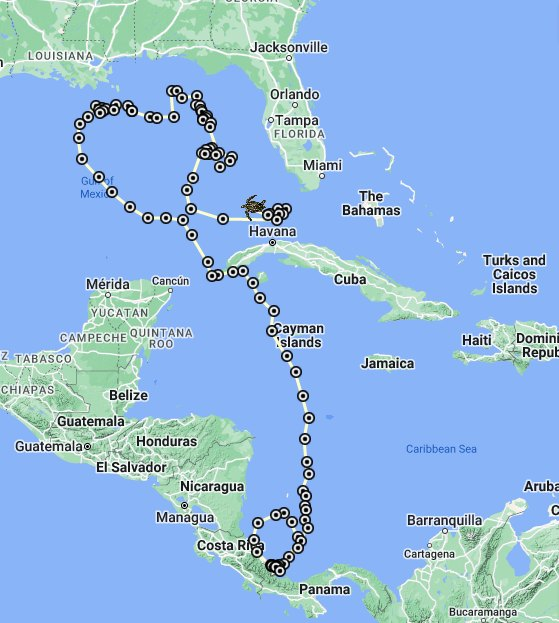
This year, we sponsored Big Blue to draw attention towards the global plastic pollution crisis. Without a doubt, plastic pollution is choking our ocean and sea turtles are among its most vulnerable victims. Roughly 10 million tons of plastic end up in the sea each year – that’s a dump truck full of plastic each minute!
Sadly, this means leatherback turtles like Big Blue are impacted by plastic debris during every stage of their lives. They crawl through plastic on their way to the ocean as hatchlings, they swim through heaps and swirls of plastic while migrating to and from their nesting grounds and they often swallow synthetic materials like plastic bags, confusing them for algae or jellyfish (one of their favorite menu items). Ultimately, plastic debris is responsible for the deaths of 100 million marine mammals each year and thousands of sea turtles.

Plastic pollution can harm or kill sea turtles in a myriad of ways:
1. Ingestion: Once sea turtles ingest plastic debris there’s no turning back; sea turtles have downward facing spines in their throats, preventing the possibility of regurgitation. Plastic items like bags can easily get stuck in their stomachs, wreaking havoc on their digestive systems and their ability to swallow food. Another disheartening phenomenon called “bubble butt” occurs when plastic begins to decompose within the body of a sea turtle, releasing harmful gasses that cause the individual to float. Floating sea turtles have lost control of their bodies; they’re unable to hunt properly (often leading to starvation) and become easy targets for predators.
Large debris in the ocean like plastic bags, balloons, bottles, degraded buoys, and plastic wrappers eventually degrade into smaller (< 2mm) pieces called microplastics. Microplastics are easily ingested by sea turtles, are often toxic and can serve as hosts for invasive species that can have long-term consequences.
2. Entanglement: Sea turtles can become badly injured and incapacitated if they are entangled in plastic debris like fishing line and six-pack rings. Unfortunately, most entangled sea turtles will starve, drown, strangle or suffocate without human intervention.
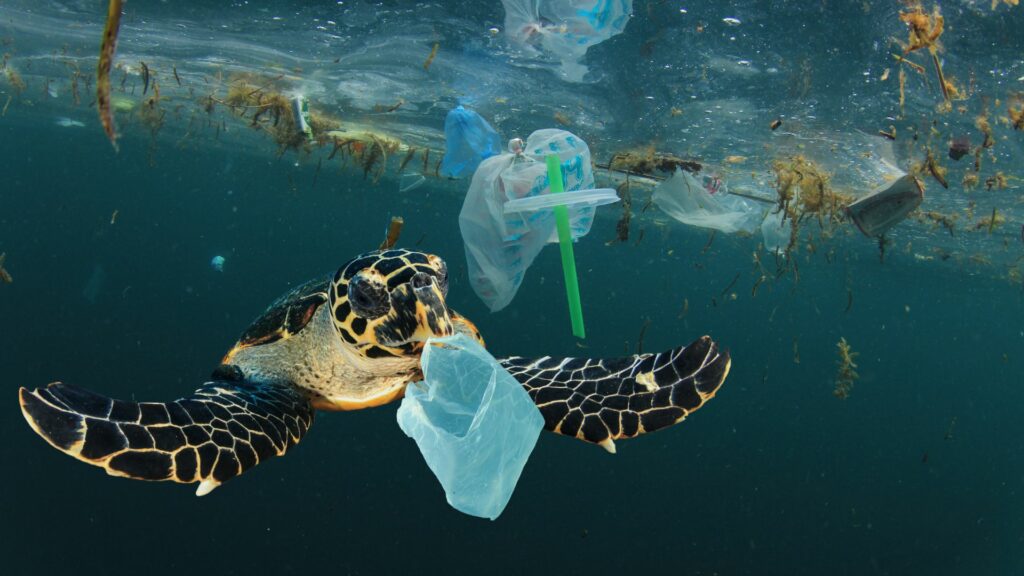
Take action for our turtles
Every day, we encourage you to keep the health of our ocean top of mind. You can make a difference simply by creating a suite of ocean-friendly habits at home:
Reduce, Recuse, Recycle
REFUSE plastic bags while shopping; opt to bring your own reusable bag instead
Support local, regional and nationwide bans on plastic grocery bags
Don’t litter and don’t stand by while others do. If you see something, say something.
Every time you go to the beach, clean up at least 5 pieces of trash
Properly secure your trash bags to prevent any fly-away plastics
Say no to balloons! Balloons often travel high into the sky and end up in our ocean, where turtles often mistake them for food.
Spread the word! Brainstorm and discuss ocean-friendly habits with your classmates, family members and friends.

To get involved with the 2023 Tour de Turtles marathon and fundraise for turtle research and conservation, visit their website or check out the #TourdeTurtles hashtag on Twitter!
This is a project of the Atlantis Blue Project Foundation.
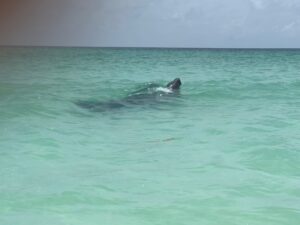
Community Efforts Drive Marine Mammal Conservation in The Bahamas
In late July 2024, The Bahamas Marine Mammal Research Organisation (BMMRO) was alerted to a tragic discovery in the waters north of Bahama Palm Shores,
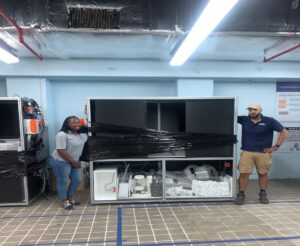
Bahamas Coral Gene Bank Equipment Arrives at Atlantis Resort
We are thrilled to announce that The Bahamas Coral Gene Bank at Atlantis, Paradise Island has received two 40-foot containers packed with essential lab equipment

Bahamas Coral Gene Bank Equipment Arrives at Atlantis Resort
We are thrilled to announce that The Bahamas Coral Gene Bank at Atlantis, Paradise Island has received two 40-foot containers packed with essential lab equipment
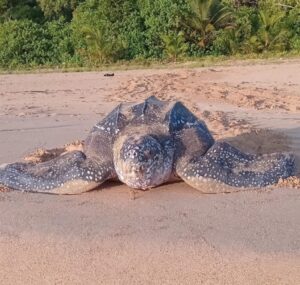
Cheer for Victory the Leatherback Sea Turtle in the 2024 Tour de Turtles!
Meet Victory: Our Leatherback Sea Turtle Champion This year, Atlantis Resort and Atlantis Blue Project Foundation proudly sponsor Victory. She is an adult female leatherback
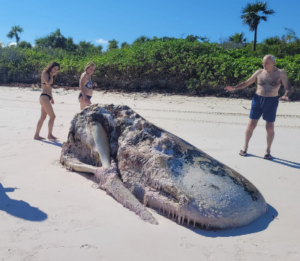
Marine Mammal Mysteries: Stranding Response Efforts in The Bahamas
Recent Strandings in The Bahamas Sperm Whale, Eleuthera, December 2023 In December 2023, the head of a sperm whale washed ashore at Lighthouse Point in Eleuthera.
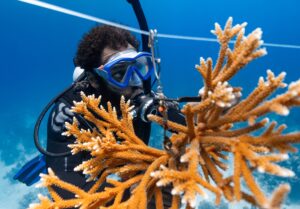
Reef Rescue Network: Growing Stronger
The Atlantis Blue Project Foundation is thrilled to share inspiring news from the frontlines of marine conservation. The Reef Rescue Network’s “Coral is Calling” campaign,

